Beautiful Minds
I’m thankful for unique learners!
 My SPD/SLD/ADD (Sensory Processing Disorder, Specific Learning Disability-Dyslexia, Visual and Auditory Processing Disorders, Attention Deficit Disorder, etc) sweetie, aka Renaissance Girl, has raised the bar on my homeschooling skills more times than I can count. Her beautiful mind sees the world through a unique lens similar to those of historical icons such as Thomas Edison, Leonardo Da Vinci, Benjamin Franklin, and Albert Einstein. While academics have been a huge challenge for
My SPD/SLD/ADD (Sensory Processing Disorder, Specific Learning Disability-Dyslexia, Visual and Auditory Processing Disorders, Attention Deficit Disorder, etc) sweetie, aka Renaissance Girl, has raised the bar on my homeschooling skills more times than I can count. Her beautiful mind sees the world through a unique lens similar to those of historical icons such as Thomas Edison, Leonardo Da Vinci, Benjamin Franklin, and Albert Einstein. While academics have been a huge challenge for her, the artistic and musical gifts she’s been given are incredible, and her gentle, sensitive soul is a rare and precious treasure. Many years of therapy have yielded the ability to read, and she’s like a butterfly newly emerged from her cocoon. Jane Eyre, Little Women, Anne of Green Gables, all have sent her beautiful mind soaring to different times and places, and all have become intimate, lifelong friends with my sweet girl. I am so blessed to be entrusted with such a unique child to guide and grow and love!
her, the artistic and musical gifts she’s been given are incredible, and her gentle, sensitive soul is a rare and precious treasure. Many years of therapy have yielded the ability to read, and she’s like a butterfly newly emerged from her cocoon. Jane Eyre, Little Women, Anne of Green Gables, all have sent her beautiful mind soaring to different times and places, and all have become intimate, lifelong friends with my sweet girl. I am so blessed to be entrusted with such a unique child to guide and grow and love!
One of my girl’s drawings!

Einstein recognized his unique lens and often commented about it and about how organized education systems didn’t accommodate individuality and creativity. Here is a look into this ‘unique learner’s’ mind in his own words:
Education is what remains after one has forgotten what one has learned in school. Albert Einstein
A man should look for what is, and not for what he thinks should be.
Albert Einstein
It is a miracle that curiosity survives formal education.
Albert Einstein
A person who never made a mistake never tried anything new.
Albert Einstein
A question that sometimes drives me hazy: am I or are the others crazy?
Albert Einstein
The only thing that interferes with my learning is my education.
Albert Einstein
All that is valuable in human society depends upon the opportunity for development accorded the individual.
Albert Einstein
Any intelligent fool can make things bigger and more complex… It takes a touch of genius – and a lot of courage to move in the opposite direction.
Albert Einstein

Any man who can drive safely while kissing a pretty girl is simply not giving the kiss the attention it deserves. (One of my favorite Einstein quotes, lol!)
Albert Einstein
Any man who reads too much and uses his own brain too little falls into lazy habits of thinking.
Albert Einstein
Do not worry about your difficulties in Mathematics. I can assure you mine are still greater.
Albert Einstein
Everything should be as simple as it is, but not simpler.
Albert Einstein
Everything that can be counted does not necessarily count; everything that counts cannot necessarily be counted.
Albert Einstein
Few are those who see with their own eyes and feel with their own hearts.
Albert Einstein
God always takes the simplest way.
Albert Einstein
He who can no longer pause to wonder and stand rapt in awe, is as good as dead; his eyes are closed.
Albert Einstein
He who joyfully marches to music in rank and file has already earned my contempt. He has been given a large brain by mistake, since for him the spinal cord would suffice.
Albert Einstein
I am enough of an artist to draw freely upon my imagination.
Albert Einstein
I have no special talent. I am only passionately curious.
Albert Einstein
I think and think for months and years. Ninety-nine times, the conclusion is false. The hundredth time I am right.
Albert Einstein
I used to go away for weeks in a state of confusion.
Albert Einstein
I want to know all Gods thoughts; all the rest are just details.
Albert Einstein
If people are good only because they fear punishment, and hope for reward, then we are a sorry lot indeed.
Albert Einstein
If we knew what it was we were doing, it would not be called research, would it?
Albert Einstein
If you are out to describe the truth, leave elegance to the tailor.
Albert Einstein
If you can’t explain it simply, you don’t understand it well enough.
Albert Einstein
Imagination is everything. It is the preview of life’s coming attractions.
Albert Einstein
Imagination is more important than knowledge.
Albert Einstein
In matters of truth and justice, there is no difference between large and small problems, for issues concerning the treatment of people are all the same.
Albert Einstein
Information is not knowledge.
Albert Einstein
Intellectuals solve problems, geniuses prevent them.
Albert Einstein
It is the supreme art of the teacher to awaken joy in creative expression and knowledge.
Albert Einstein

It’s not that I’m so smart, it’s just that I stay with problems longer.
Albert Einstein
Once we accept our limits, we go beyond them.
Albert Einstein
Only a life lived for others is a life worthwhile.
Albert Einstein
Only two things are infinite, the universe and human stupidity, and I’m not sure about the former.
Albert Einstein
Perfection of means and confusion of ends seem to characterize our age.
Albert Einstein
Pure mathematics is, in its way, the poetry of logical ideas.
Albert Einstein
Science without religion is lame, religion without science is blind.
Albert Einstein
Strive not to be a success, but rather to be of value.
Albert Einstein
The gift of fantasy has meant more to me than my talent for absorbing positive knowledge.
Albert Einstein
The high destiny of the individual is to serve rather than to rule.
Albert Einstein
The important thing is not to stop questioning. Curiosity has its own reason for existing.
Albert Einstein
The most beautiful thing we can experience is the mysterious. It is the source of all true art and science.
Albert Einstein
The only real valuable thing is intuition.
Albert Einstein
The only source of knowledge is experience.
Albert Einstein
The process of scientific discovery is, in effect, a continual flight from wonder.
Albert Einstein

The pursuit of truth and beauty is a sphere of activity in which we are permitted to remain children all our lives.
Albert Einstein
The true sign of intelligence is not knowledge but imagination.
Albert Einstein
The value of a man should be seen in what he gives and not in what he is able to receive.
Albert Einstein
The whole of science is nothing more than a refinement of everyday thinking.
Albert Einstein
The world is a dangerous place to live; not because of the people who are evil, but because of the people who don’t do anything about it.
Albert Einstein
There are two ways to live: you can live as if nothing is a miracle; you can live as if everything is a miracle.
Albert Einstein
There is no logical way to the discovery of these elemental laws. There is only the way of intuition, which is helped by a feeling for the order lying behind the appearance.
Albert Einstein
To raise new questions, new possibilities, to regard old problems from a new angle, requires creative imagination and marks real advance in science.
Albert Einstein
Try not to become a man of success, but rather try to become a man of value.
Albert Einstein
We cannot despair of humanity, since we ourselves are human beings.
Albert Einstein
We cannot solve our problems with the same thinking we used when we created them.
Albert Einstein
We shall require a substantially new manner of thinking if mankind is to survive.
Albert Einstein
We should take care not to make the intellect our god; it has, of course, powerful muscles, but no personality.
Albert Einstein
Weakness of attitude becomes weakness of character.
Albert Einstein
When I examine myself and my methods of thought, I come to the conclusion that the gift of fantasy has meant more to me than any talent for abstract, positive thinking.
Albert Einstein
When the solution is simple, God is answering.
Albert Einstein
Joy in looking and comprehending is nature’s most beautiful gift.
Albert Einstein
Learn from yesterday, live for today, hope for tomorrow. The important thing is not to stop questioning.
Albert Einstein
Logic will get you from A to B. Imagination will take you everywhere.
Albert Einstein
Look deep into nature, and then you will understand everything better.
Albert Einstein
Love is a better teacher than duty.
Albert Einstein
Most people say that is it is the intellect which makes a great scientist. They are wrong: it is character.
Albert Einstein

My religion consists of a humble admiration of the illimitable superior spirit who reveals himself in the slight details we are able to perceive with our frail and feeble mind.
Albert Einstein
Never lose a holy curiosity.
Albert Einstein
 Award-winnning author, L.R.Knost, is the founder and director of the children's rights advocacy and family consulting group, Little Hearts/Gentle Parenting Resources, and Editor-in-Chief of Holistic Parenting Magazine. Books by L.R.Knost include Whispers Through Time: Communication Through the Ages and Stages of Childhood ; Two Thousand Kisses a Day: Gentle Parenting Through the Ages and Stages ; The Gentle Parent: Positive, Practical, Effective Discipline ; and Jesus, the Gentle Parent: Gentle Christian Parenting the first four books in the Little Hearts Handbook gentle parenting series, and children’s picture books Petey’s Listening Ears and the soon-to-be-released Grumpykins series.
Award-winnning author, L.R.Knost, is the founder and director of the children's rights advocacy and family consulting group, Little Hearts/Gentle Parenting Resources, and Editor-in-Chief of Holistic Parenting Magazine. Books by L.R.Knost include Whispers Through Time: Communication Through the Ages and Stages of Childhood ; Two Thousand Kisses a Day: Gentle Parenting Through the Ages and Stages ; The Gentle Parent: Positive, Practical, Effective Discipline ; and Jesus, the Gentle Parent: Gentle Christian Parenting the first four books in the Little Hearts Handbook gentle parenting series, and children’s picture books Petey’s Listening Ears and the soon-to-be-released Grumpykins series.
Gratitude is an Attitude!
When it comes down to it, gratitude is all about attitude!
~~~~~

I can moan about being overwhelmed with life, or I can be overwhelmed with joy by life’s blessings.
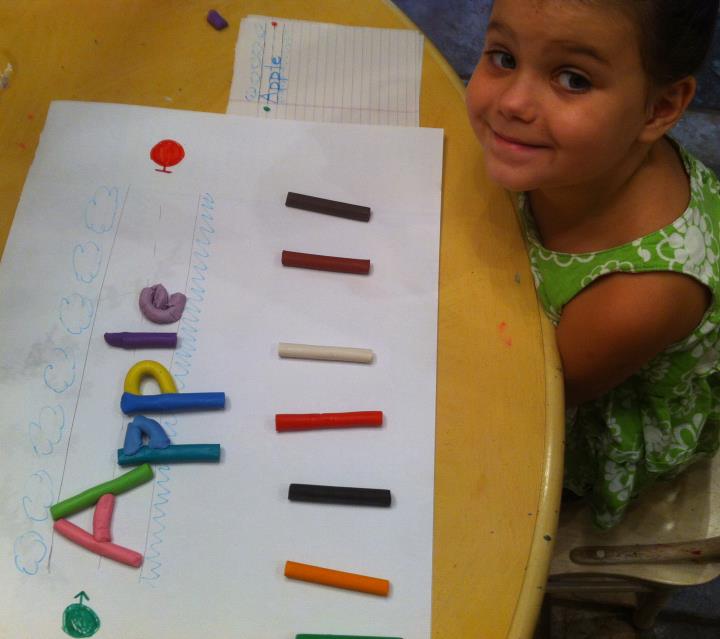
I can complain about all the extra work that comes with a new school year, or I can happily embrace a new beginning.
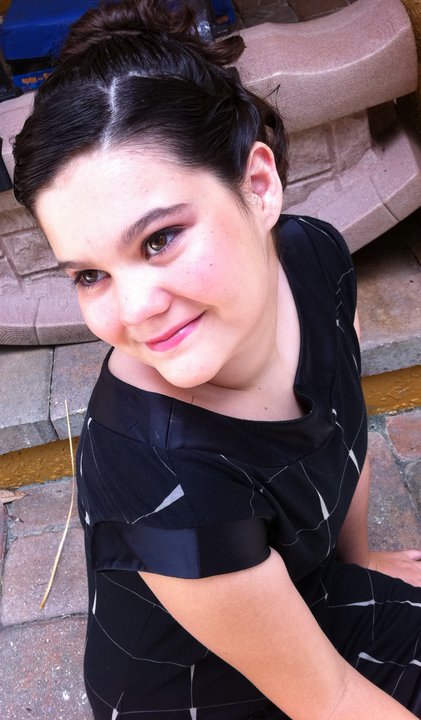
I can waste time longing for my youth, or I can gasp at the youthful beauty of my most precious gifts.
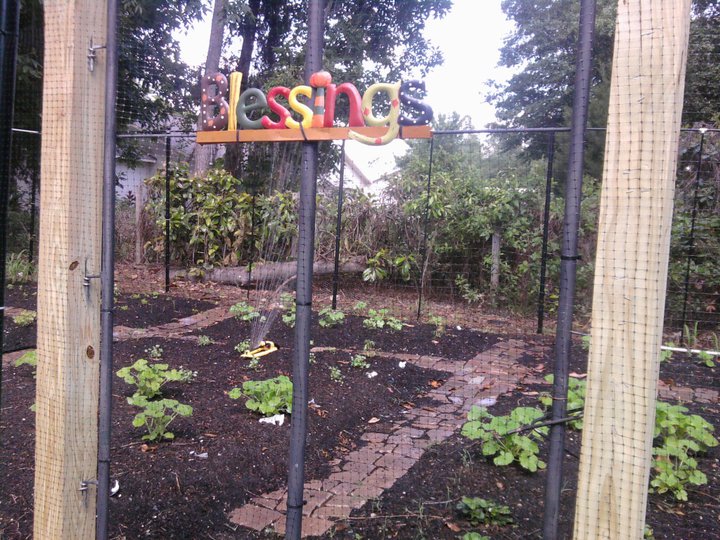
I can wish for riches, or I can revel in richness.

I can worry about the future, or I can trust Who holds the future.
Gratitude bestows reverence, allowing us to encounter everyday epiphanies, those transcendent moments of awe that change forever how we experience life and the world.
John Milton
 Award-winnning author, L.R.Knost, is the founder and director of the children's rights advocacy and family consulting group, Little Hearts/Gentle Parenting Resources, and Editor-in-Chief of Holistic Parenting Magazine. Books by L.R.Knost include Whispers Through Time: Communication Through the Ages and Stages of Childhood ; Two Thousand Kisses a Day: Gentle Parenting Through the Ages and Stages ; The Gentle Parent: Positive, Practical, Effective Discipline ; and Jesus, the Gentle Parent: Gentle Christian Parenting the first four books in the Little Hearts Handbook gentle parenting series, and children’s picture books Petey’s Listening Ears and the soon-to-be-released Grumpykins series.
Award-winnning author, L.R.Knost, is the founder and director of the children's rights advocacy and family consulting group, Little Hearts/Gentle Parenting Resources, and Editor-in-Chief of Holistic Parenting Magazine. Books by L.R.Knost include Whispers Through Time: Communication Through the Ages and Stages of Childhood ; Two Thousand Kisses a Day: Gentle Parenting Through the Ages and Stages ; The Gentle Parent: Positive, Practical, Effective Discipline ; and Jesus, the Gentle Parent: Gentle Christian Parenting the first four books in the Little Hearts Handbook gentle parenting series, and children’s picture books Petey’s Listening Ears and the soon-to-be-released Grumpykins series.
A September to Remember: Unraveling What I’ve Knit Together
Here’s my very last ~A September to Remember~ guest post! I’ll be sharing a wrap-up soon of all the wonderful ‘vintage finds’ shared by these awesome writers. So enjoy this last, but so very not least, post from a very raw and honest Zoie @ TouchstoneZ. (Loss mentioned)
~~~~Unraveling What I’ve Knit Together~~~
I have early memories of feeling wrong within myself. I may have been four years old the first time I can recall believing I was bad. I know I didn’t have the words to identify the feelings, but I had them. I have never felt that I had the right to be alive. My entire life, I have had this little doubt that crept into every experience and tainted it just enough to keep me from holding it fully to my heart-the belief that I was broken somewhere inside.
I found this poem I wrote fifteen years ago:
Since Puck is Taken
If I show you my poetry
You will see inside of me
Core of polluting coal
50 pack lung-seeming soul
Craven, cowering
Rotten bulb flowering
So I will never show
And you will never know
And it dawned on me why the circular thinking of PPD was so appealing to me. It felt like a comfy wool sweater that was well-worn and familiar. I could slip it on like a protection from the elements of my life that felt raw and chafing. I had worn this sweater before. The only time I can recall taking it off was after the birth of my first child. I felt so empowered that nothing could make me un-love myself.
Then I got pregnant for the second time. And that pregnancy ended in a stillbirth. And I pulled my old sweater on without even noticing. I didn’t take it off for the birth of my second son. I zipped it up and added a hood when I got PPD for the first time. Then, the PPD was a bit better and I took off the hood. I mourned the lost time from the PPD haze but wasn’t ready to take it off yet. It wasn’t until after the birth of my third son and PPD returned that I had had enough. I didn’t want to lose more time to this.
I decided that this time, instead of periodically trying to rip off the sweater and throw it away (because that always ended up with me digging frantically in my mental garbage bins to put it back on) I would caress the sweater. Enjoy its fine knit and excellent fit. I made this sweater. I placed each stitch of wool in myself. It is lovingly crafted to protect me and I honor it for what I have made. I honor myself that at least some small part of me has always been able to see the true me and wrap it up in warmth and protection.
For the first time, perhaps in my life, I feel ready to address a lifetime of depression. I can notice it because of the skills I have been working on: sitting with uncomfortable feelings and holding them. Just holding them.
 Grief
Grief
Grief over the loss of my daughter. Grief over the loss of all the parts of myself I never allowed. Grief over the childhood, teenhood, and adulthood that was black with this belief.
Grief
Grief over how things are not the way I want them to be. Grief over the loss of time and closeness with my children and my husband. Grief over not living my life the way I wanted and for not being as loving with myself and others as I want to be.
Grief
I’ve been allowing grief to arise. I’ve been putting my arms around my heart to hold me together because I’m afraid I’ll fly apart if I even look at these feelings. I’ve been noticing them, crying over them, and watching them come and go as I need them to.
And Anger. There’s a lot of anger underneath the grief, and I’m terrified of anger. I don’t know what to do with it. So, I don’t do anything with it. I sit with it. I can always put my sweater back on if it gets too scary. It’s folded up in my lap for whenever I need to hide.
Don’t forget to head over to check out Zoie @ TouchstoneZ!
 Award-winnning author, L.R.Knost, is the founder and director of the children's rights advocacy and family consulting group, Little Hearts/Gentle Parenting Resources, and Editor-in-Chief of Holistic Parenting Magazine. Books by L.R.Knost include Whispers Through Time: Communication Through the Ages and Stages of Childhood ; Two Thousand Kisses a Day: Gentle Parenting Through the Ages and Stages ; The Gentle Parent: Positive, Practical, Effective Discipline ; and Jesus, the Gentle Parent: Gentle Christian Parenting the first four books in the Little Hearts Handbook gentle parenting series, and children’s picture books Petey’s Listening Ears and the soon-to-be-released Grumpykins series.
Award-winnning author, L.R.Knost, is the founder and director of the children's rights advocacy and family consulting group, Little Hearts/Gentle Parenting Resources, and Editor-in-Chief of Holistic Parenting Magazine. Books by L.R.Knost include Whispers Through Time: Communication Through the Ages and Stages of Childhood ; Two Thousand Kisses a Day: Gentle Parenting Through the Ages and Stages ; The Gentle Parent: Positive, Practical, Effective Discipline ; and Jesus, the Gentle Parent: Gentle Christian Parenting the first four books in the Little Hearts Handbook gentle parenting series, and children’s picture books Petey’s Listening Ears and the soon-to-be-released Grumpykins series.
A September to Remember: Too Beautiful for Earth~Heaven’s Newest Angel Baby
As I wrap up ~A September to Remember~ with such a grateful heart to all my friends who shared their ‘vintage treasures’ with me, I’ve chosen a final few posts to share as a lead in to October’s Pregnancy and Infant Loss Awareness Month. Here is a touching post from Theresa at NurturingtheNaturalMama. Be aware that loss is discussed. Be blessed, mamas.
The Doctor said I had been “struck by lightening twice”- I have now conceived twice while on the pill. And I get it, with so many women who struggle with infertility out there, how is it that someone like me conceives TWICE on the pill? I have no idea. First time I can chalk it up to perhaps imperfect compliance, this time- I have no explanation. Nonetheless, it happened.
So just as anyone who thought they were being “safe” that finds out they’re pregnant would do, I freaked. I had a complete and utter panic attack. I have a nine month old, I’m still on medication for PPD (the label for which says it can cause birth defects), I’ve been taking the pill, and drinking alcohol! EEK! So I go to the Doctor, who draws some blood… assures me I’m probably early enough where it won’t matter… and talks me down of my stress-cliff. I go home more self assured and semi- ready to try and explain this to my husband.
Needless to say, by the next day the thoughts have sunk in and we’re ready to dig in our heels and make our growing family fit into our tiny apartment, and even spent well into the night before chatting about names and the other idle chit chat that goes along with the beginning stages of pregnancy.
That’s when we got the call.
I would need my bloodwork rechecked the following day at my OBGYN’s office. When my OB called, the conversation started with “I am so sorry…”
What?! You’re sorry about what???….
My HCG levels had dropped, and I was told if I hadn’t already, I was having a miscarriage.
“This is not a viable pregnancy.” What does that even mean? Simple translation: Your baby is dead. Now I get it, to some this seems dramatic- especially for someone who was probably only 6- 8 weeks pregnant. But my baby’s heart was beating. My baby was alive, and is now dead.
The few family members we had told have attempted to console us with the ever popular “something just wasn’t right”, or “your body just wasn’t ready”, or “everything happens for a reason”- and while I can appreciate all of that, it still means my baby is gone. And what makes me feel the worst, is that s/he was so tiny at such an early gestation…. I get a lump in my throat even just THINKING about typing this… that s/he probably got…. gulp….. flushed down the toilet.
I, for all intents and purposes, could have flushed my baby down the toilet.
This devastates me most of all.
But the biggest lesson I have learned from all of this, is that miscarriage is such a silent and lonely struggle. You don’t tell anyone because you don’t want people to think you’re just seeking pity, but then everyone around you is going on with their daily lives, talking about the night out with friend A, or their trip to the bar with friend B, and you were just told your baby is dead. And no one ever knew your baby even existed.
How do you get support? Who do you talk to? You’re certainly not going to go around asking ‘hey, have you had a miscarriage? I just did and I’m not sure what to do next’.
I have at least found the following links which have either brought some peace/support to me, or I feel could help others:
My Forever Child: Memorial Jewelry
We Were Gonna Have a Baby, but we Had an Angel Instead
Bethany’s Baby from Bethany’s blog
And I have found much needed solace in my husband, and in our Church. And tonight, as I rocked my baby A to sleep, I held her a little tighter, kissed her forehead a bit longer, drew in a deeper breath of her warm baby smell, waited for her own breathing to even, and then laid her down and watched…. and then did what I haven’t done in … well, I think my whole life… I prayed. I prayed to whoever this God is, that my other babies stay safe. And that I wanted to thank Him SO much for the blessings I DO have in my life. My two existing, healthy, happy babies… my wonderful husband.. my beautiful step daughter… my family…. my friends…
and then I asked Him, pretty please, if He could just take tonight, to rock my baby to sleep…
Thanks for Theresa for sharing, and don’t forget to check out her site at NurturingtheNaturalMama!
 Award-winnning author, L.R.Knost, is the founder and director of the children's rights advocacy and family consulting group, Little Hearts/Gentle Parenting Resources, and Editor-in-Chief of Holistic Parenting Magazine. Books by L.R.Knost include Whispers Through Time: Communication Through the Ages and Stages of Childhood ; Two Thousand Kisses a Day: Gentle Parenting Through the Ages and Stages ; The Gentle Parent: Positive, Practical, Effective Discipline ; and Jesus, the Gentle Parent: Gentle Christian Parenting the first four books in the Little Hearts Handbook gentle parenting series, and children’s picture books Petey’s Listening Ears and the soon-to-be-released Grumpykins series.
Award-winnning author, L.R.Knost, is the founder and director of the children's rights advocacy and family consulting group, Little Hearts/Gentle Parenting Resources, and Editor-in-Chief of Holistic Parenting Magazine. Books by L.R.Knost include Whispers Through Time: Communication Through the Ages and Stages of Childhood ; Two Thousand Kisses a Day: Gentle Parenting Through the Ages and Stages ; The Gentle Parent: Positive, Practical, Effective Discipline ; and Jesus, the Gentle Parent: Gentle Christian Parenting the first four books in the Little Hearts Handbook gentle parenting series, and children’s picture books Petey’s Listening Ears and the soon-to-be-released Grumpykins series.
A September to Remember: Books Spanning Generations
Today’s guest for ~A September to Remember~ is Audra Rundle from Little One Books!
~~Books Spanning Generations~~
 My baby is growing – rapidly. I know this because my belly is growing rapidly. My excitement to meet my little cherub is growing exponentially, and books are a huge part of the stimulus.
My baby is growing – rapidly. I know this because my belly is growing rapidly. My excitement to meet my little cherub is growing exponentially, and books are a huge part of the stimulus.
I am lucky enough to work with children’s books, and while I am reviewing them for work, I find myself daydreaming about reading them aloud to my little one in just a few months. My favorite children’s author at the moment is Mo Willems – particularly Don’t Let the Pigeon Drive the Bus and Pigeon Wants a Puppy – as they are the first children’s books to have me full on belly laughing every time I read them. I can’t wait to do my funny pigeon voice for my little one and make him or her laugh along with me. I’ve tried it out on my husband a few times, and although he does laugh, it may be more at my antics than the pigeon’s.
I recently registered for books and CDs through the Little One Books baby shower registry and had so much fun choosing a mixture of favorites from when I was little (like Dr. Seuss’ Go! Dog! Go!) and new classics, such as If You Give a Pig a Pancake.
I’ve already received my first book for the baby, Shel Silverstein’s The Giving Tree.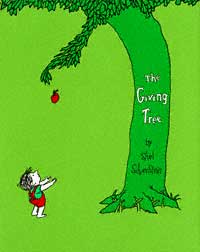 It came from my best friend of 25 years, and I remember her mom reading it to us at her house when we were toddlers. Admittedly, it makes me a bit misty eyed to think of us reading the same classic story to my child now. How neat is it that my son or daughter and I will share nostalgic feelings about the same books?!
It came from my best friend of 25 years, and I remember her mom reading it to us at her house when we were toddlers. Admittedly, it makes me a bit misty eyed to think of us reading the same classic story to my child now. How neat is it that my son or daughter and I will share nostalgic feelings about the same books?!
I would love to hear from you what some of your favorite classic books are from your own childhood that you also read to your little one!
~~~~~~~~~~~~~~~~~~~~~
Little One Books specializes in quality books, music, and video, for children birth through age five, and have personally reviewed and selected each and every item in their store. You’ll find detailed information on why they prefer a particular product in their “Why We Chose” section of each product page.
 Award-winnning author, L.R.Knost, is the founder and director of the children's rights advocacy and family consulting group, Little Hearts/Gentle Parenting Resources, and Editor-in-Chief of Holistic Parenting Magazine. Books by L.R.Knost include Whispers Through Time: Communication Through the Ages and Stages of Childhood ; Two Thousand Kisses a Day: Gentle Parenting Through the Ages and Stages ; The Gentle Parent: Positive, Practical, Effective Discipline ; and Jesus, the Gentle Parent: Gentle Christian Parenting the first four books in the Little Hearts Handbook gentle parenting series, and children’s picture books Petey’s Listening Ears and the soon-to-be-released Grumpykins series.
Award-winnning author, L.R.Knost, is the founder and director of the children's rights advocacy and family consulting group, Little Hearts/Gentle Parenting Resources, and Editor-in-Chief of Holistic Parenting Magazine. Books by L.R.Knost include Whispers Through Time: Communication Through the Ages and Stages of Childhood ; Two Thousand Kisses a Day: Gentle Parenting Through the Ages and Stages ; The Gentle Parent: Positive, Practical, Effective Discipline ; and Jesus, the Gentle Parent: Gentle Christian Parenting the first four books in the Little Hearts Handbook gentle parenting series, and children’s picture books Petey’s Listening Ears and the soon-to-be-released Grumpykins series.
College for Struggling Learners
by Lee Binz
The HomeScholar
 Learning to Compensate
Learning to Compensate
Dealing with learning challenges is difficult, but in high school, it can become seriously concerning. You don’t have to be afraid! With the great student to teacher ratio of homeschooling, and the love for your child, you have what it takes!
Debbie was at her lowest point when she realized her 12 year old son, Dan, could not read or write in his Sunday school classes. She had to carefully shield him from the judgment of others. Her homeschool friends were very understanding, but she worked hard to keep him away from situations where he would have to read aloud. She was distraught. Again and again they changed curriculum, hoping each time that a new curriculum would change everything. It seemed like nothing would ever work. He struggled with learning all the way through high school. She never had him officially tested, because she didn’t want him to be labeled as an adult. Dan has achieved wonderful things since graduating homeschool!
When Dan turned 18, he started working at Starbucks. An excellent worker, he received nothing but positive feedback which motivated him to continue his education. He decided to attend college. He didn’t score well on the SAT, so they did not report his scores to colleges. He entered college “through the back door” his mother said, by attending community college first. His excellent work ethic and love of learning helped him thrive where others felt adrift. Dan transferred from community college to the university with a 3.89 grade point average. There were 300 applicants to the business school this year, and Dan was one of only 100 admitted. Debbie says “He finally realizes he can do it!”
 Debbie has some great advice for parents. Don’t push them before they are ready. She was glad she kept him home, so that he could avoid the negative feedback from a public school setting. She read aloud to Dan constantly – even his high school textbooks, when necessary. She used verbal assessments in all his classes, and didn’t introduce essay writing until much later.
Debbie has some great advice for parents. Don’t push them before they are ready. She was glad she kept him home, so that he could avoid the negative feedback from a public school setting. She read aloud to Dan constantly – even his high school textbooks, when necessary. She used verbal assessments in all his classes, and didn’t introduce essay writing until much later.
She recommends books by Dr. Raymond Moore, including Better Late Than Early: A New Approach to Your Child’s Education and Grace Llewellyn, The Teenage Liberation Handbook: How to Quit School and Get a Real Life and Education and Cynthia Tobias, The Way They Learn. She says, “You feel like you’re failing – like you didn’t do something right.” Don’t be deterred, though. It takes a lot of one-on-one time, but that’s the benefit of homeschooling. Read to them their textbooks, and the classics. Even in college they can be allowed help with reading.
 In her lowest moments, Debbie would remember her grandfather. He also could not read. His wife would read blueprints to him each night so he would be prepared for work the next day. Still, he grandfather was a successful businessman. He was able to compensate. Her son Dan is able to compensate now.
In her lowest moments, Debbie would remember her grandfather. He also could not read. His wife would read blueprints to him each night so he would be prepared for work the next day. Still, he grandfather was a successful businessman. He was able to compensate. Her son Dan is able to compensate now.
Her biggest surprise was realizing that Dan wanted a college degree. She had never thought he would go to college, and only vaguely considered a technical school. But when he worked at Starbucks, he identified his gift in business. So her additional advice is the same as mine. She says, “Even if you think they won’t go to college, they may – so always be prepared!”
Dan is so thankful he was homeschooled. He has said he would never put his own children in public school. He knows that if he had been in public school, he wouldn’t be where he is today. Nurturing is critical, and homeschooling can provide that best. Debbie says, “I remember the hopelessness. They CAN succeed and excel – just give them the tools.”
Learning to Teach
 JoAnn homeschooled her two daughters, feeling extremely unsure of her abilities – until her girls were officially diagnosed with learning disabilities. Once she had the diagnosis, she realized that homeschooling was the best option. She didn’t want her girls ostracized and placed in a “special” group that would have a negative effect on their socialization skills. Even her mother became increasingly supportive of homeschooling after the diagnosis was made.
JoAnn homeschooled her two daughters, feeling extremely unsure of her abilities – until her girls were officially diagnosed with learning disabilities. Once she had the diagnosis, she realized that homeschooling was the best option. She didn’t want her girls ostracized and placed in a “special” group that would have a negative effect on their socialization skills. Even her mother became increasingly supportive of homeschooling after the diagnosis was made.
Her two girls could not read until half-way through 5th grade. They struggled in reading, writing, and spelling. Joann took her children to The Slingerland Institute. She recommends two pamphlets that really helped her cope. One is Why Wait for a Criterion of Failure. The other is An Adaptation of the Orton-Gillingham Approach for Classroom Teaching of Reading, both by Beth Slingerland.
JoAnn’s advice is “Never despair! The timing of brain growth is on your CHILD’S timetable, not yours. Accept it, because you certainly can’t change it!” She wishes she would have dropped more academic subjects when they were in elementary school. Still, she is so glad she homeschooled. “Homeschooling is better for dyslexic kids for the positive encouragement and socialization.”
 She taught with multi-sensory input and multi-sensory output. In every subject she worked to provide lessons with audio, visual, AND tactile input. She would supplement courses with drama, hands on projects, and verbal assessments all the way through school. Her daughters were especially helped by the use of color. Her daughter still color codes her college lecture notes to improve her retention.
She taught with multi-sensory input and multi-sensory output. In every subject she worked to provide lessons with audio, visual, AND tactile input. She would supplement courses with drama, hands on projects, and verbal assessments all the way through school. Her daughters were especially helped by the use of color. Her daughter still color codes her college lecture notes to improve her retention.
JoAnn’s older daughter went directly into the University and majored in biology with a minor in chemistry. She has recently graduated with an advanced degree as a Veterinarian Technician. Her younger daughter also went directly into the University. She will graduate with a degree in interior design, and has already done some design work for Bill Gates as a college intern. Both girls were very successful in college.
Learning to Cope
Jill is hesitant about labeling her daughter in any way, but knew she faced some unique challenges even though she wasn’t formally diagnosed. Her daughter recently became a National Merit Scholarship Semi-Finalist. Here is what Jill says about her daughter’s struggles: “She worked hard and I’m very proud of her. She is the daughter that would fit into the statement ‘I could never homeschool my child because….’ She is very active, intense, dramatic and a joy to be around. I am convinced that if she were in the public school we would have been ‘encouraged’ to put her on medications (the standard line around here, when she is getting jumpy is to ‘run up to the mailbox and get the mail’ which is a mile round trip). She has forced me to think outside of the box and, well, it is an adventure I’m sorry to see come to a close.”
 Like the other mothers, Jill was able to find a way to harness strengths and weaknesses, and teach her child to compensate for difficulties. With a parent’s close attention, unique coping mechanisms can develop. A homeschooling parent can see small successes, and learn to shape and mold new ways of coping with each challenge.
Like the other mothers, Jill was able to find a way to harness strengths and weaknesses, and teach her child to compensate for difficulties. With a parent’s close attention, unique coping mechanisms can develop. A homeschooling parent can see small successes, and learn to shape and mold new ways of coping with each challenge.
Joelle is right in the thick of things, with her young child. I asked her for some advice for others, and she emphasizes that coping comes from faith. This is Joelle’s experienced advice.
“A learning ‘disability’ (a word I hesitate to use for anyone who doesn’t have a severe condition) isn’t something you can just make go away if you have a clinic and a handful of web links. A learning challenge is best addressed with being sensitive to learning style and interests, which, as you know, vary from child to child.
A learning challenge is also a mindset, a lifestyle, and sore knees from prayer. A learning challenge means you’ll come face to face with your pessimism and lack of faith through tears of mourning for the child you don’t have. But lest anyone abandon hope, a learning challenge also means seeing God answer those tears by turning them to tears of what is, hands down, absolutely the most incredible joy when you see the triumphs. You will see those victories sooner or later on Earth or in Heaven.
A learning challenge leads to personal growth in the siblings of the challenged child. A learning challenge is a worldview, a lens, a perspective. It’s the fierce mother-bear love you have when you whisper to your child, ‘Don’t listen to the naysayers. I love you no matter what, and I’m still your teacher.’ I can’t put this in a box. I can offer a short list, but there’s only one resource on here that I can guarantee hands down will help everyone. The rest can be labeled ‘of interest.’
1) The Bible. Children are people – in fact, they are the most human of people. There are lots of passages on how we are to deal with our fellow humans. This is the only resource on this list that I can guarantee *will* help.
2) Last Child in the Woods: Saving Our Children From Nature-Deficit Disorder by Richard Louv – read this concurrently with #3
3) Smart Moves: Why Learning Is Not All in Your Head by Carla Hannaford – which will probably lead to curiosity about #4
4) Brain Gym or similar therapies offered by #5 and #6
5) The National Association for Child Development ( )
6) The Developmental Movement Center, Seattle (206) 525-8038″
Learning to Grow
Jay Smith of Linfield College says this, “The advice that I’d give to your students, is to simply be proactive in their college search process. The students shouldn’t be afraid to ask colleges if they offer support for students with learning disabilities, and what that support entails. We have high expectations of our students, but we also understand that we all learn in different ways.”
 Some colleges have an extremely supportive environment for children with learning disabilities. Redeemer Pacific College is a small Catholic college in Langley, BC, affiliated with Canada’s premier Christian liberal arts university, Trinity Western University. Admissions Coordinator Jennifer Friesen says, “All RPC students are able to use the services for students with disabilities offered through TWU, including access to the Learning Resource Centre and starting off their university career at TWU’s Freshman Academy.” The Learning Resource Centre offers services such as note taking, accommodated examinations and providing material in alternate formats.
Some colleges have an extremely supportive environment for children with learning disabilities. Redeemer Pacific College is a small Catholic college in Langley, BC, affiliated with Canada’s premier Christian liberal arts university, Trinity Western University. Admissions Coordinator Jennifer Friesen says, “All RPC students are able to use the services for students with disabilities offered through TWU, including access to the Learning Resource Centre and starting off their university career at TWU’s Freshman Academy.” The Learning Resource Centre offers services such as note taking, accommodated examinations and providing material in alternate formats.
Freshman Academy is a program for students who have not met the requirements for admission into university due to a low grade point average or missing academic courses. Friesen says, “Freshman Academy allows students to go through their classes in a small cohort with the support of their professors, a faculty Learning Coach, and their classmates. Once students have completed Freshman Academy they are able to directly enter their second year of university at Redeemer Pacific and Trinity Western.”
When I go to college fairs, I notice how many colleges truly specialize in students with learning struggles. They WANT your students, and they are ready, willing, and able to teach them.
Learning to Succeed
 You can request accommodation for the SAT and ACT if necessary, which does require a doctor’s diagnosis. If you don’t want accommodation for the college admission tests, a diagnosis may not be necessary. You may feel comfortable with your homeschooling methods, and don’t need additional help or direction. Perhaps a specialist will not impact what you’re doing, and a diagnosis may not change anything or be worth your while. On the other hand, if you are completely baffled about how to teach your student in a way that makes sense, and the input of a specialist will help you and change what you are doing, then evaluation may be useful.
You can request accommodation for the SAT and ACT if necessary, which does require a doctor’s diagnosis. If you don’t want accommodation for the college admission tests, a diagnosis may not be necessary. You may feel comfortable with your homeschooling methods, and don’t need additional help or direction. Perhaps a specialist will not impact what you’re doing, and a diagnosis may not change anything or be worth your while. On the other hand, if you are completely baffled about how to teach your student in a way that makes sense, and the input of a specialist will help you and change what you are doing, then evaluation may be useful.
If you think a diagnosis will help YOU, then I think it will help your child. In that situation, testing would be worthwhile, even if it’s inconvenient. If testing will not help you, then it may not be necessary.
Keep in mind your long-terms goals. You want your child to grow up and have their own home. You want them to succeed and thrive in anything they choose. There are colleges that specialize in learning disabilities. There IS a great college out there for him, and they will understand and accept any learning issues without hesitation. Search and you will find just the right college.
Lee Binz, The HomeScholar, specializes in helping parents homeschool high school. Get Lee’s 5-part mini-course, “The 5 Biggest Mistakes Parents Make Homeschooling High School.” You can find her at http://www.TheHomeScholar.com. Sign up for our newsletter, The HomeScholar Record: http://www.thehomescholar.com/homeschool-newsletter.php
 Award-winnning author, L.R.Knost, is the founder and director of the children's rights advocacy and family consulting group, Little Hearts/Gentle Parenting Resources, and Editor-in-Chief of Holistic Parenting Magazine. Books by L.R.Knost include Whispers Through Time: Communication Through the Ages and Stages of Childhood ; Two Thousand Kisses a Day: Gentle Parenting Through the Ages and Stages ; The Gentle Parent: Positive, Practical, Effective Discipline ; and Jesus, the Gentle Parent: Gentle Christian Parenting the first four books in the Little Hearts Handbook gentle parenting series, and children’s picture books Petey’s Listening Ears and the soon-to-be-released Grumpykins series.
Award-winnning author, L.R.Knost, is the founder and director of the children's rights advocacy and family consulting group, Little Hearts/Gentle Parenting Resources, and Editor-in-Chief of Holistic Parenting Magazine. Books by L.R.Knost include Whispers Through Time: Communication Through the Ages and Stages of Childhood ; Two Thousand Kisses a Day: Gentle Parenting Through the Ages and Stages ; The Gentle Parent: Positive, Practical, Effective Discipline ; and Jesus, the Gentle Parent: Gentle Christian Parenting the first four books in the Little Hearts Handbook gentle parenting series, and children’s picture books Petey’s Listening Ears and the soon-to-be-released Grumpykins series.
A September to Remember: Embracing Respect
Today’s though-provoking ‘vintage post’ is from Jessica Bowman, author of
To read more awesome insights from Jessica, you can find her over at Bohemian Bowmans!
~Embracing Respect~
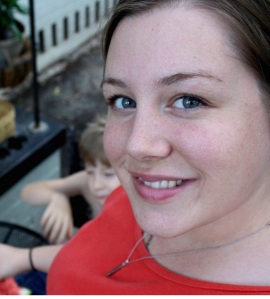 Well, the New Year is around the corner, in case you weren’t aware. And now that the Christmas sugar buzz is wearing off, I suppose most people, like me, are starting to reflect on 2010 and peer curiously towards 2011.
Well, the New Year is around the corner, in case you weren’t aware. And now that the Christmas sugar buzz is wearing off, I suppose most people, like me, are starting to reflect on 2010 and peer curiously towards 2011.
There are some a lot of circumstances in our life that I have no control over. This post is about the other things.
The things I can do.
First of all, I’m not a resolution making person.
I never make New Year’s resolutions. I think the “success” rate of them is abysmal, and I don’t want to be disappointed in myself later for not meeting some silly and entirely too specific goal. Instead, I just enter every new year with the obvious plans of growing wiser that year, becoming a better parent, wife, friend, and follower of Jesus.
However.
This year, I can feel myself funneling my regeneratory New Years powers in a certain direction.
No, it’s not a weight goal. Though it probably should be.
I’m not wanting to climb a mountain.
Or learn to make jewelry.
Or visit Disneyworld.
It’s a Family Mission Statement whittled down to one. single. word.
Respect.
I’ve been thinking a lot about respect the last couple of months. In regards to parenting. In regards to learning.
I began to learn about respect in marriage a few years ago when I read a book about it. I had never thought very much about respect before then. I had never realized the importance of it. The magnitude of it.
But, for some reason, though that book did shift my respect paradigm in relation to my husband, it didn’t leave that little box that I put it in. It never occurred to me that the concept could spill over into seemingly unrelated areas of life, like education.
But in the last quarter of 2010 I began to think a lot more deeply about education. About learning. About parenting.
And the theme I kept coming back to is Respect.
I’ve realized anew this year, that in practice, I don’t respect my children very much. I hold my authority over their head and play my “because I said so” card too often.
I often times feel like I am living out Colossians 3:21.
“Parents, don’t come down too hard on your children or you’ll crush their spirits.”
I’ve been crushing the spirits of my children.
With my impatience. With my harshness. With my disrespect.
So with tears and the simple, unrefined prayer of “help” repeated untold times as I lay in bed at night, I began to grasp a hold of the practice of respect in our day to day.
I’ve increasingly stopped talking to them as if they are children, but instead as if they are grown ups. Or, more accurately, as if they are people.
As if they are people created by God with talents and purpose that I have no right to squash with my annoyance.
So much of what children do that exasperate us are not “sins” at all. They are just people with very little experience at life who need to be led by example.
Our example.
Examples in authority are powerful.
It is ever so hard to step outside of the parenting you were parented with.
Or the marital skills that were modeled for you.
And it is ever so illogical to think that if we are harsh and impatient with our children, they will learn to be respectful and loving of their siblings and friends and future families.
So, I’ve been learning to respect my children. To treat them as people. To listen. To explain things they don’t know yet, as if they were another grown up, instead of as if they are inconveniences and ever disdainful children.
And, lo and behold, the more I’ve treated them with respect, the more they have respected me. And each other.
The more patient I’ve been with them, the more patience they’ve shown each other. The calmer I’ve been with them, the calmer they’ve been with each other. The more attention I’ve shown them, the more attention they’ve shown each other.
I realize this isn’t a complicated concept. And is the second greatest commandment at it’s base.
Treat other people the way you want to be treated.
But sometimes that can feel truly hard to practice and own.
So, that is my purposeful word for my family this year.
And it is already changing us.
Don’t forget to check Jessica out over at Bohemian Bowmans, and take a look at her ebook!
 Award-winnning author, L.R.Knost, is the founder and director of the children's rights advocacy and family consulting group, Little Hearts/Gentle Parenting Resources, and Editor-in-Chief of Holistic Parenting Magazine. Books by L.R.Knost include Whispers Through Time: Communication Through the Ages and Stages of Childhood ; Two Thousand Kisses a Day: Gentle Parenting Through the Ages and Stages ; The Gentle Parent: Positive, Practical, Effective Discipline ; and Jesus, the Gentle Parent: Gentle Christian Parenting the first four books in the Little Hearts Handbook gentle parenting series, and children’s picture books Petey’s Listening Ears and the soon-to-be-released Grumpykins series.
Award-winnning author, L.R.Knost, is the founder and director of the children's rights advocacy and family consulting group, Little Hearts/Gentle Parenting Resources, and Editor-in-Chief of Holistic Parenting Magazine. Books by L.R.Knost include Whispers Through Time: Communication Through the Ages and Stages of Childhood ; Two Thousand Kisses a Day: Gentle Parenting Through the Ages and Stages ; The Gentle Parent: Positive, Practical, Effective Discipline ; and Jesus, the Gentle Parent: Gentle Christian Parenting the first four books in the Little Hearts Handbook gentle parenting series, and children’s picture books Petey’s Listening Ears and the soon-to-be-released Grumpykins series.


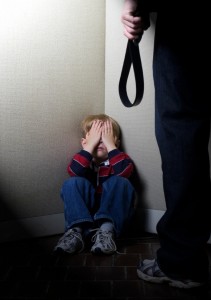 ~Hana Williams: Another child “disciplined” to death~
~Hana Williams: Another child “disciplined” to death~ A few other amazing gentle parenting crusaders:
A few other amazing gentle parenting crusaders:



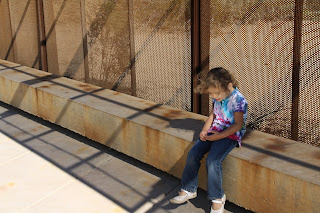
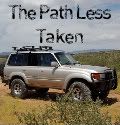

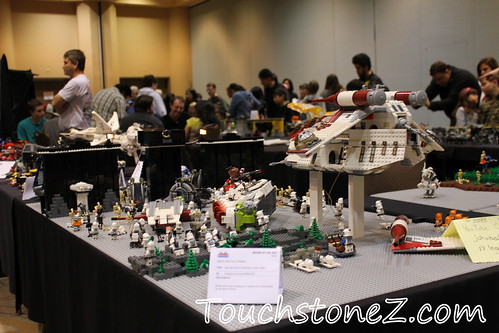 My View of Lego Festival
My View of Lego Festival
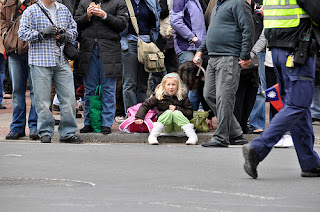
 Melissa started blogging at
Melissa started blogging at 








